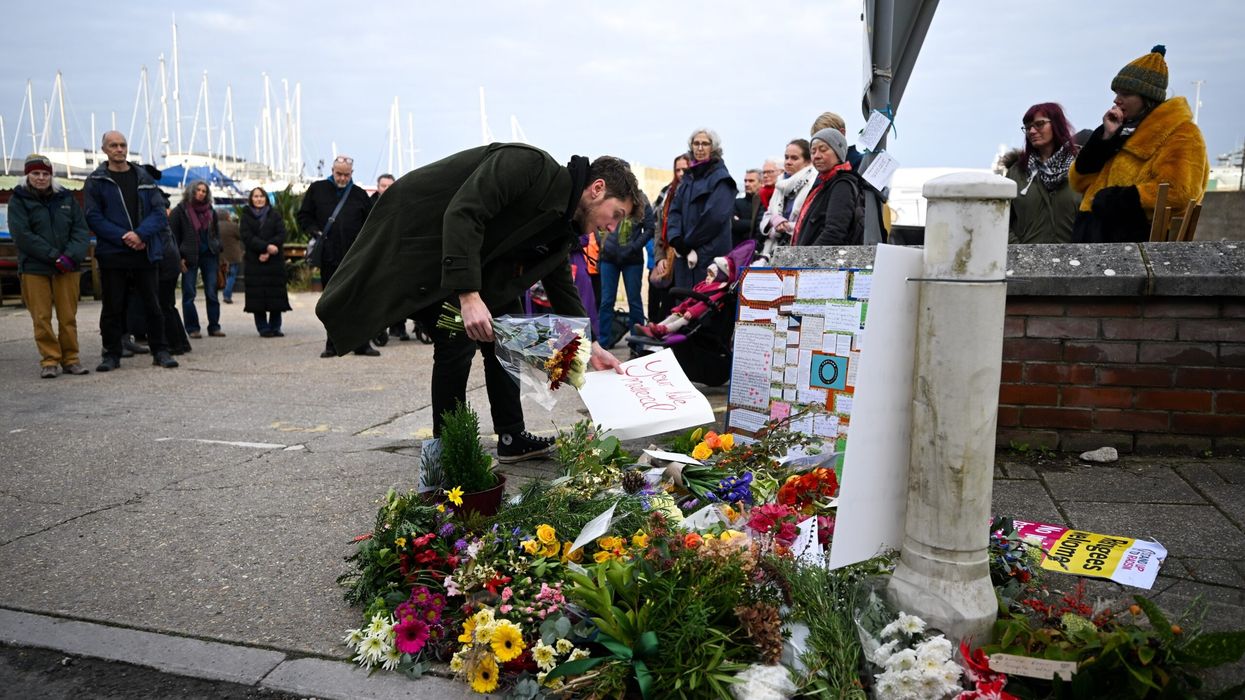In the last four years, a total of 23 asylum seekers are believed to have taken their own lives while in Home Office accommodation, marking a figure more than double that of the previous four years, as revealed by findings obtained by the Guardian.
Research indicates that between 2020 and 2023, a total of 23 individuals are confirmed or suspected to have died by suicide.
From April 2016 to the end of 2019, the data from freedom of information sources suggests that 10 individuals may have taken their own lives.
In a subsequent dataset spanning from 2020 to August 2023, 19 individuals are believed to have died by suicide, with an additional four asylum seekers reportedly contributing to a total of at least 23 deaths.
The new data, acquired through Liberty Investigates, surfaced shortly after reports of the suicide of Leonard Farruku, an Albanian asylum seeker, on the Bibby Stockholm barge in Portland, Dorset.
As of August 27, this year, government-provided freedom of information data indicates that a total of 176 individuals have died in asylum seeker accommodation due to various reasons.
An additional four deaths have surfaced in the remaining months of 2023, all suspected to be self-inflicted, bringing the known toll to 180.
Among previous cases, in February 2022, a 25-year-old Eritrean took his own life at a train station. In August last year, a 29-year-old Iranian passed away after applying for asylum 14 months earlier.
Recent incidents include the discovery of Irakli Kapanadze, 37, found dead outside his asylum hotel in Wakefield on September 14 this year, and the tragic case of Rima al-Badi, a 21-year-old from Oman, who is said to have taken her own life on September 1, 2023, following over a year's stay in a Home Office hotel.
On October 13, 2023, Victor Hugo Pereira Vargas, a 63-year-old individual from Colombia, was discovered in his hotel room in Hailsham, East Sussex, with what seemed to be self-inflicted injuries.
A spokesperson from Sussex police mentioned that his death was not under suspicion of foul play.
According to reports, hotel staff had observed Vargas in a visibly distressed state two months earlier on August 16. He requested them to contact the police as he expressed a desire to leave the UK and avoid returning to his home country.
On September 11, he reported having trouble sleeping for three consecutive days and had an appointment booked with a GP for mental health concerns. When he didn't appear for breakfast, security personnel accessed his room, which appeared to have been barricaded from the inside, only to find him dead.
An asylum seeker residing at the same hotel said, we were deeply shocked by what happened to Victor.
“He used to go down for breakfast at 7am the same time as me. But one morning he just didn’t appear. None of us were given support or counselling to help us deal with this.”
Graham O’Neill, the policy manager at the Scottish Refugee Council, remarked that the recent revelations indicated significant issues within the vast system of institutional accommodation that affects more than 50,000 refugees.
This accommodation increasingly necessitates room-sharing among individuals often dealing with trauma, forced to live in severe poverty on £1.25 a day and restricted from working. One consequence is a sharp decline in mental health, he said.
A spokesperson for Clearsprings Ready Homes, one of three private companies holding contracts with the Home Office for asylum accommodation, including the property where Vargas died, said due to data protection reasons, we cannot provide details on individual cases.
“However, we are always saddened to hear of the death of any individual in our accommodation.
“The wellbeing of service users housed by us is always of primary concern. We work closely with a range of organisations and professionals who offer further support to those who need it.”
A Home Office spokesperson commented that the well-being of all individuals in our care is of utmost importance. Any death within asylum accommodation is a tragic event and is subject to investigation by the police and coroner, they said.
The spokesperson added that their ongoing efforts are dedicated to identifying and addressing the needs and vulnerabilities of individuals residing in asylum accommodation, particularly concerning mental health and trauma.




